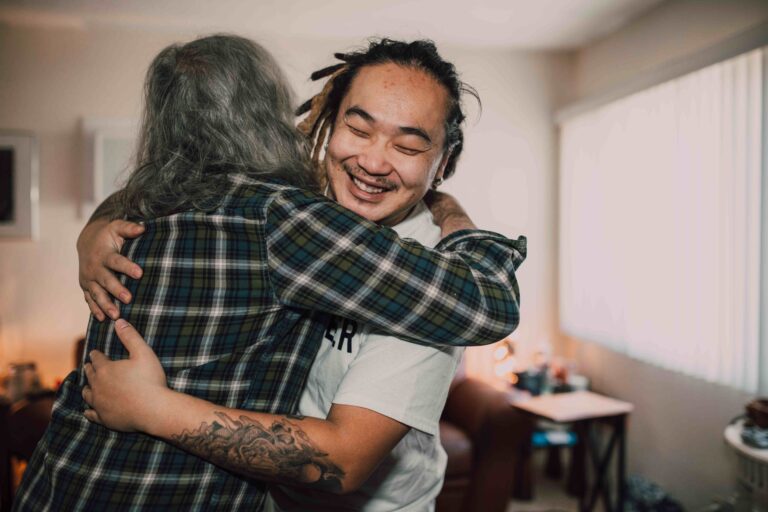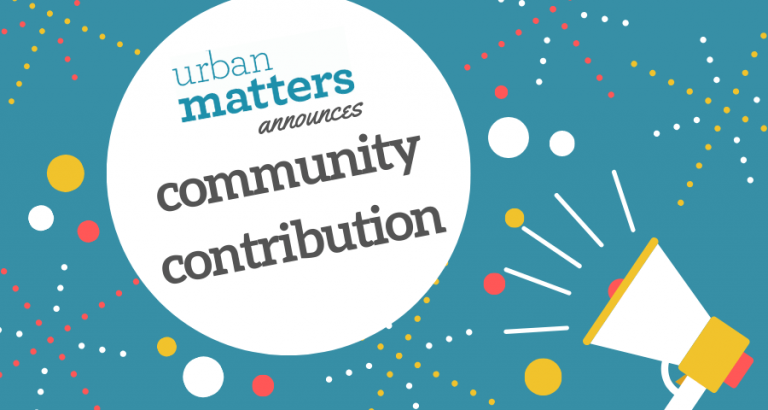24 November 2016
Exposé of a Social Enterprise
Urban Systems Launches Social Enterprise—Now What?
We get a lot of questions about what Urban Matters is, what it does, and how it’s different from Urban Systems. This interview with Executive Director Trina Wamboldt attempts to tackle some of those unknowns.
Q: Hi Trina. Thanks for chatting with us. Can you explain the difference between Urban Systems and Urban Matters? Are they similar companies, or quite different?
TW: I’m happy to. They’re quite different actually. Urban Systems is a professional service firm. It’s a team made up of professionals with deep expertise. Consultants are hired out for projects, typically on an hourly basis. We get contracts mainly from governments, cities, First Nations and other communities and we are normally hired to solve a specific problem. It’s a very straightforward transaction—fee for service. Urban Systems sits high in the profitability curve and is quite well established. The model here is very straightforward in general.
Urban Matters on the other hand is a very different animal. First off, our tax structure is different. As a registered CCC, we are required by law to reinvest a portion of our earnings back into the community. Like Urban Systems, we are consultants who provide expertise, but here we also incubate and innovate. So for example, we may consult on a large social problem, then also share our office space with a group or groups who are working to solve it. Our clients could be a group of five or six different partners rather than a one to one relationship. And our end goal with most projects is to launch social enterprises. That means self-sustaining, profit generating companies that are working to solve social problems. We’re an enterprise that builds other enterprises, if you will.
Q: That’s interesting. So what kinds of projects does Urban Matters take on?
TW: We had to get laser focused around that, because there are so many complex community issues where we could plug in. Ultimately we decided to focus on issues affecting people within the social realm—in other words, we help to ensure that vulnerable populations have their most basic needs met; needs such as access to clean drinking water, affordable housing, and sustainable employment. Geographically speaking we operate in Western Canada.
Q: Can you talk a little more about Urban Matters’ method and model?
TW: Sure. When we first launched, it became clear that we needed to focus on what we were best at – consulting. But that wasn’t enough. The name of the game is to move the needle and have an impact; to do this you have to go deeper. Consulting is important but in the big picture it’s still periphery. That’s why we introduced things like incubation, innovation labs and the actual launching of other sustainable ventures. If you broke our model down into three parts, it would have a community oriented consulting section on the left, an incubation/innovation lab section (bringing people together, hosting a convening space, and inviting the right folks to the table) in the middle, and then finally, a business creation section on the right. That last part is key. We’re ultimately here to launch social ventures. Maybe we own a piece of them, maybe we don’t. All the research and consulting and convening in the world doesn’t help a problem if there’s no implementation of solutions.
Q: Do you feel proud of what you’ve accomplished so far?
TW: Yes. I can look in the mirror at the end of the day and feel good about what we’re doing. It’s because I know that this company is honestly doing all it can do for community. We are using our amazing resources—people and space—and creating a social enterprise that creates more social enterprises. The positive ripple effect is really exciting. If Urban Matters can be self-propelling or sustaining—and we’re getting close—imagine it. We could be pumping out ten social enterprises a year! How does that look 50 years down the road? How much have we raised the quality of life for people not currently participating in the economy? I get really passionate about this stuff. It’s a movement. So yeah, we’re proud. We have lots more to do, but our sleeves are rolled up and we’re getting to it.
Categories:
Social Enterprise




